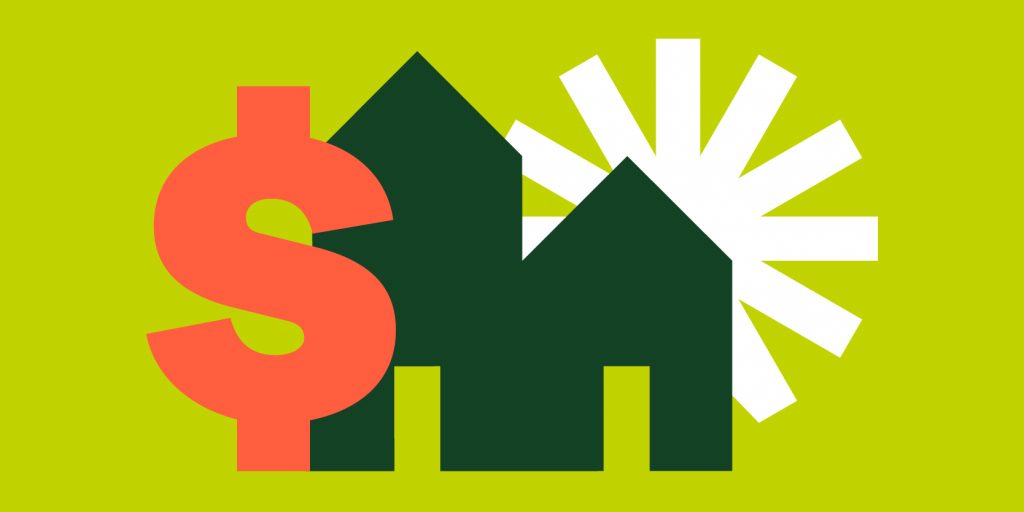Thinking about renters insurance? Whether your landlord requires it when you rent an apartment or you just think renters insurance sounds like a good idea, you probably have a lot of questions—like, what is renters insurance, anyway?
Here’s everything you need to know about renters insurance, including why it’s important and how to get it.
What is renters insurance?
Renters insurance is a type of insurance policy that covers your personal property if damaged or stolen. If someone breaks into your rental and steals your belongings, your landlord typically is not responsible (unless you can prove they violated landlord tenant law by, say, not providing a lock for your doors or windows). But renters insurance would cover the cost of replacing the items. It also often covers damage to your belongings from fire, vandalism, and other disasters.
Other important things to know about renters insurance
-
1. Renters insurance doesn’t cost a lot.
Is renters insurance worth it? The average cost of renters insurance is $12-$15 a month. Think about the value of all of your stuff. How much rent could you afford if you had to replace it all? In most cases, the cost of renters insurance is well worth protecting it.
-
2. Comparison shopping is smart when buying renters insurance.
Most insurance companies offer renters insurance. But what their policies offer can be very different, so it’s important to look at more than just the price when reviewing quotes. Read the policies carefully to see what is covered. The biggest thing is to do a rough estimate of the value of your belongings. Then choose a policy that covers them in full, but doesn’t offer more coverage than you need so you don’t squeeze your budget by paying more than necessary.
Also check out whether a renters insurance policy pays what your property is worth (actual cash value) or the cost to replace it (replacement-cost coverage). Think about what the difference might mean for your most important things. For example, if the cash value of your bike isn’t enough to buy a replacement, and you need one to get to work, it might be important for you to get coverage to replace stolen items.
-
3. Renters insurance covers your stuff even when it’s not in your home.
Any belongings that you keep in your car or that you bring with you places, like on vacation, are covered by most renters insurance policies. Renters insurance will reimburse you the same amount whether your bike is stolen from inside your apartment or while parked outside your favorite coffee shop.
-
4. It covers damage to other people’s stuff, too.
Your renters insurance policy sticks with you wherever you go, such as to a friend’s house or shopping. If you knock over a display of glass plates in a store, for example, your renters insurance might cover the damage.
-
5. You could stay in a hotel in case of emergency.
If your rental is unlivable for a time because of damages from a fire or a storm, the cost of a temporary hotel stay would likely be covered by renters insurance. Your policy should cover it, even if your neighbor has a fire and management has to turn off utilities to your building for a few days to make repairs.
-
6. You’re covered if someone gets hurt on your watch.
What if one of your friends is injured in your apartment? If a friend rolls an ankle because they stepped on your dog’s chew toy, you could be liable for the medical costs. But if you have renters insurance, the liability part of the policy will cover that.
-
7. Renters insurance covers damage you cause.
It also covers damage to the apartment that you cause, such as water damage from letting a bathtub overflow. That includes any damage it causes to your downstairs neighbor’s unit. If the landlord sues you for damages not covered by your security deposit, and that’s when your insurance would kick in.
An important note about property damage: renters insurance doesn’t typically cover damage done to your rental property by another person. If someone were to accidentally break your window, for example, and that person doesn’t have renters insurance, you’d be responsible for the damage.
-
8. Not everything is covered, so read the fine print.
Renters insurance comes with coverage limits, so it’s important to know what is and isn’t covered in your policy. It’s up to you to decide how much liability and personal property coverage to buy. A common scenario might be getting $300,000 in liability coverage and $50,000 in personal property coverage.
And there are state-by-state exceptions for disaster coverage: California renters, for instance, are not covered for damages from an earthquake, and Florida tenants are not covered for damages from a natural flood. Those usually require a separate policy. Your policy will spell out in detail which scenarios and disasters are covered.
Though you’ll never have to wonder, “what is renters insurance?” again, you may have another question about how to protect yourself as a renter: What are my rights? Here’s what you need to know about renters rights.



